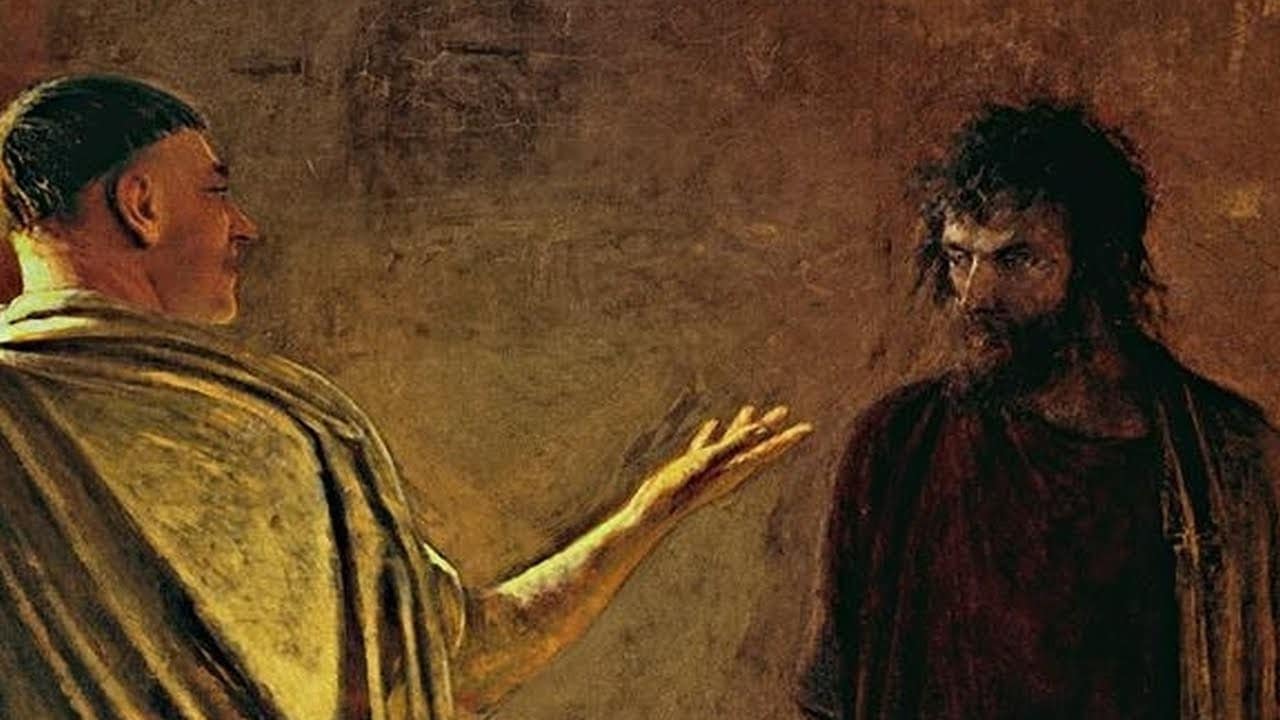375 total views
Homily for Wednesday of the 5th Week of Lent, 29 March 2023, Jn 8:31-42

This morning I was a guest at Radyo Veritas with Angelique Lazo and Fr. Douglas Badong as hosts. They asked me to share a little reflection on today’s Gospel and I started by telling them that the opening verse of today’s Gospel is the biblical inspiration for the vision and mission of Radio Veritas, the Catholic Church’s radio station of the Archdiocese of Manila from the time that it was established 62 years ago now: “If you remain in my word, you will truly be my disciples, and you will know the truth, and the truth will set you free.”
Unfortunately, people usually remember only the last line of this famous verse: “Katotohanan ang magpapalaya sa inyo.” (The Truth will set you free.) This verse is actually made up of four lines: 1) If you remain in my word, 2) you will truly be my disciples, 3) you will know the truth, and 4) and the truth will set you free. You cannot get to the 4th without passing through the three lines before it.
We start with the 2nd line: what does it take “TO BECOME A TRUE DISCIPLE OF CHRIST”? (tunay na alagad ni Kristo)? The qualifying word is TUNAY, as opposed to HUWAD (meaning, fake discipleship). Even with jewels and precious metals and stones, there are fakes. And one who is unable to distinguish between the genuine and the fake is bound to be fooled. Apparently, it works the same way with Christian discipleship—if the saying is true that “madali ang maging tao ngunit mahirap magpakatao,” I think it is just as true to say, “Madali ang maging Kristiyano ngunit mahirap ang magpaka-Kristiyano.” Some people think a baptismal certificate is enough. People often forget that infant baptism is called a “sacrament of initiation”, which will practically have no effect on the child if the parents and the godparents who answered for the child, do not do their part in raising their child in the Christian faith.
So the answer to the question “what does it take to become a true disciple” is the first line; it is “TO REMAIN IN GOD’S WORD.” Not everyone who hears God’s Word remains in it. I have often mentioned to you the instructions of the bishop to those who are ordained to the diaconal ministry in the Church: “Receive the Word of God whose HERALD you now are; believe what you read, teach what you believe, and practice what you teach.”
The disciple who remains in God’s word becomes a HERALD. But for that to happen, we have to “believe what we read” in the Scriptures. Meaning, not to let it enter one ear and exit the other ear but take it to heart. But it does not end there. What is believed has to be taught.“Teach what you believe.” Meaning, teach only what you are convinced about, what you are willing to die for. But the most important part is “Practice what you teach.” Believe, teach, practice—they are what it means to “keep the word” in order to be a true disciple.
But there’s more; the third line says, “YOU WILL KNOW THE TRUTH.” Keeping the Word of God, taking it to heart, teaching and living it out cannot but lead us to KNOW THE TRUTH—not just from the Biblical Word, but more importantly, from the Word made flesh in Jesus Christ. St Jerome once said, “Ignorance of the Bible is ignorance of Christ.” Positively, knowledge of the Bible leads to knowledge of Christ.
Finally, the fourth line “AND THE TRUTH WILL SET YOU FREE.” Knowing the truth through discipleship, entails knowing the Word of God in Scriptures and the person of Christ, who is “the way, the truth and the life.” (Jn 14)
In front of Jesus, Pontius Pilate asked, “What is Truth?” He knew the truth himself, that Jesus was innocent of the charges against him. But he did not have the courage to stand on the truth because he was afraid to lose power. And so he washed his hands.
How ironic, the person before who stood before him as a prisoner remained spiritually free. Between him and Pontius Pilate it is obvious who actually behaved as a captive, who remained unfree, or who was the real prisoner—namely, the one who was unable to stand on the side of truth.


















